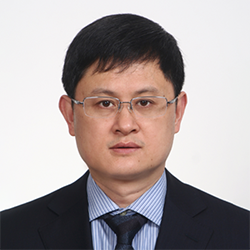Home> Plenary Speakers
Shu Hongbing
Updated: 2024-07-23

Shu Hongbing
CAS academician
Wuhan University
Key research areas: Antiviral innate immunity, inflammation and inflammation-cancer transformation
Shu Hongbing, an academician at the Chinese Academy of Sciences (CAS), discovered the key adaptor proteins VISA/MAVS and MITA/STING in antiviral innate immunity, clarifying the molecular regulatory mechanisms in relevant signal transduction.
He also identified the new tumor necrosis factor family member TALL-1/Blys/BAFF and analyzed early molecular events in the signal transduction of multiple TNF family members. His studies have elucidated the molecular regulatory mechanisms in inflammation responses and inflammation-cancer transformation.
His research provides potential molecular targets and research foundations for the prevention and treatment of related infections, immune diseases and tumor immunotherapy.
Shu has published over 190 SCI papers, which have been cited a total of 18,484 times by his peers — 47 have been cited more than 100 times in SCI journals. The highest number of citations in SCI journals received by a single paper is 1,471, with Shu as the corresponding author.
As a chief scientist, Shu has undertaken three projects with the National Basic Research Program and chaired the basic science center program "Pathogens and Hosts" and the innovative research group program "Antiviral Innate Immunity" of the National Natural Science Foundation of China, with three phases of funding extension, as well as six key projects.
As the primary author, Shu has won two first prizes in the natural science category of the Ministry of Education’s Scientific Research Excellent Achievements Award in Higher Institutions, in 2005 and 2014, and two second prizes in the National Natural Science Award, in 2010 and 2015.
He has also received the inaugural Outstanding Achievement Award from the Chinese Society for Cell Biology in 2009 and the Hubei Provincial Science and Technology Outstanding Contribution Award in 2022.
He was awarded the National Science Fund for Distinguished Young Scholars in 1999, and was elected a CAS academician in 2011, a member of the World Academy of Sciences in 2012 and an academic committee member of the Chinese Academy of Medical Sciences in 2019.
Shu has supervised over 70 doctoral students, three of whom have received the National Top 100 Excellent Doctoral Dissertation Award, while 10 have been honored as national-level young talents.
He has also received the Nature Awards for Mentoring in Science and the second prize for graduate education achievements granted by the Association of Chinese Graduate Education.
